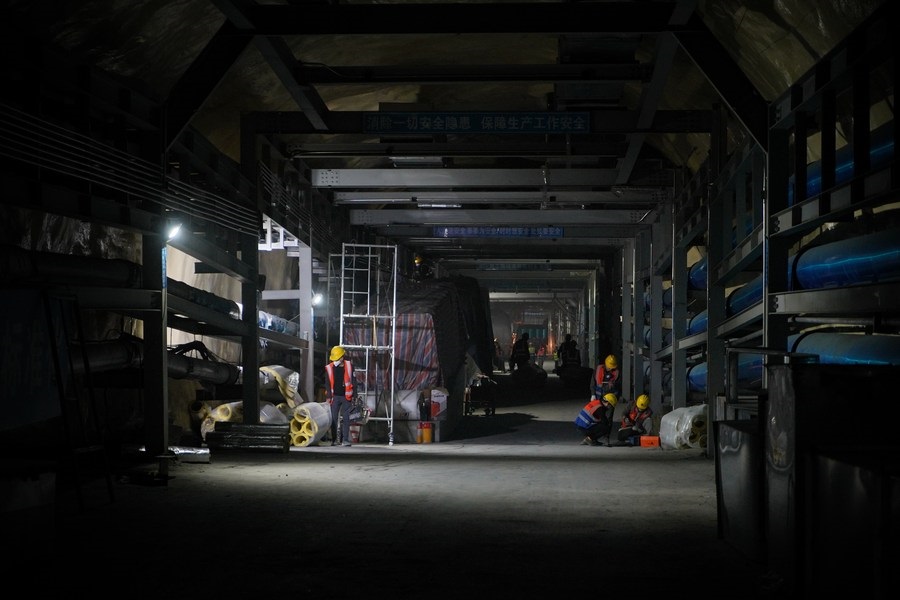World's deepest, largest underground lab operational in China


CHENGDU -- A 2,400-meter-deep physics laboratory in Southwest China's Sichuan province became operational on Thursday, making it the deepest and largest underground lab in the world.
Scientists believe the laboratory provides a "clean" space for them to pursue the invisible substance known as dark matter. They said the extreme depth helps block most cosmic rays that mess with the observation.
The Deep Underground and Ultra-low Radiation Background Facility for Frontier Physics Experiments (DURF) is located beneath Jinping Mountain in Sichuan's Liangshan Yi autonomous prefecture.
The DURF, with a total room capacity of 330,000 cubic meters, is the second phase of China Jinping Underground Laboratory. It started construction in December 2020 and was jointly built by Tsinghua University and Yalong River Hydropower Development Company Ltd.
Thanks to its location, the DURF is exposed to a tiny flux of cosmic rays which is only one hundred-millionth of that on the earth's surface. It boasts advantages including ultra-low cosmic ray flux, extremely low environmental radiation, extremely low radon concentration, and ultra-clean space, which will boost dark matter detection, said Yue Qian, a professor at Tsinghua University.
Scientists infer that visible matter accounts for only about 5 percent of the universe, while some 95 percent of the universe is made up of dark matter and dark energy.
The first batch of 10 teams from Chinese universities and research institutions, such as Tsinghua University and Shanghai Jiao Tong University, have been stationed in the DURF to carry out scientific experiments.
The DURF will become a world-class interdisciplinary deep underground scientific research center integrating multiple disciplines including particle physics, nuclear astrophysics and life sciences, to facilitate the development of China's research in relevant frontier fields, Yue said.
The first phase of the China Jinping Underground Laboratory was completed and put into use at the end of 2010, with a room capacity of about 4,000 cubic meters. It has made a number of scientific achievements, elevating China's dark matter direct detection experiments to an advanced level on the global stage.
- Tibetan students lead grassroots effort to aid earthquake victims
- SAGA City of Light celebrates Spring Festival and Shanghai's vitality
- High-quality ski resorts in Yangtze River Delta region stimulates ice and snow economy
- International students get a taste of Shenyang at centuries-old market
- A great winter skiing destination in the Yangtze River Delta region
- Captivating aerial displays at Chongqing's lion dance event




































